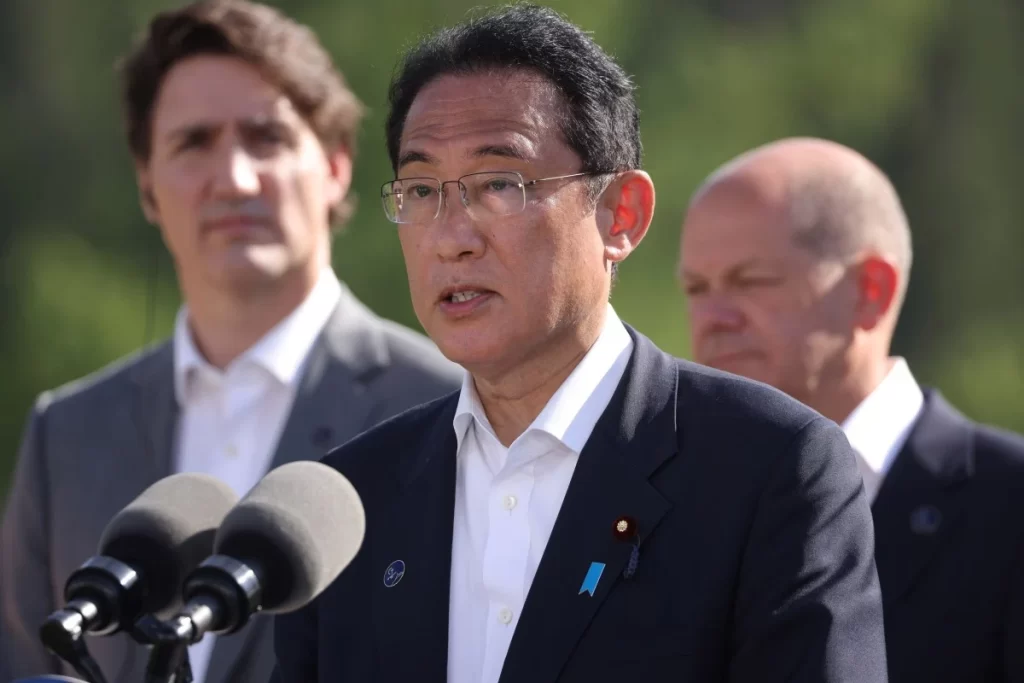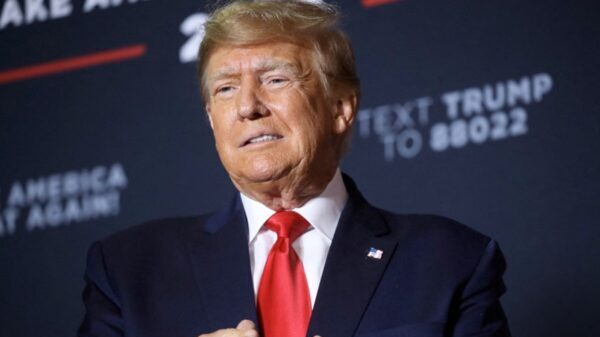
Eye on China, Japan PM Kishida inks new security deals with G7 allies
Space defence, US troop deployments and a “highly significant” cope with Britain: Japan’s Prime Minister Fumio Kishida is amassing greater than souvenirs on his whirlwind diplomatic tour.
The defence has ruled his schedule this week in conferences with Group of Seven allies in Europe and North America, because the Japanese chief seeks to attract buddies nearer withinside the face of developing stress from China, analysts say.
Japan desires to normalise its “function as a super electricity”, Amy King, accomplice professor on the Australian National University’s Strategic and Defence Studies Centre, informed AFP.
It seeks “the forms of strategic partnerships and defence relationships which can be pretty everyday for different nations, however that have been in large part off-limits to Japan” due to its pacifist post-conflict charter.
Kishida’s conversations have additionally touched on the whole thing else from alternate to weather issues, displaying that he is making an attempt to increase Tokyo’s relationships with its allies.
Japan is “insuring itself in opposition to a decline in US capacity, and operating to attract different foremost democratic states into Asia”, King stated.
The authorities unveiled a chief defence overhaul in December, which include doubling spending to 2 according to cent of GDP with the aid of using 2027 and designating China the “best strategic undertaking ever” to Japan’s protection.
Kishida’s diplomatic efforts “replicate that Japan’s country wide defence can’t be achieved with the aid of using Japan alone”, stated Mitsuru Fukuda, a professor at Nihon University who research disaster management.
“In the past, Japan turned into capable of separate economic system and politics,” doing enterprise with nations like China and Russia even as taking part in the safety protections of its alliance with the United States.
But deepening friction among democratic and authoritarian nations, which include over Russia’s conflict in Ukraine, means “we can’t do this any greater”, he stated.
Japan is web website hosting this 12 months’s G7 and Kishida is touring all bloc participants besides Germany on a experience capped with the aid of using talks in Washington Friday with US President Joe Biden.
US and Japanese overseas and defence ministers have already agreed to increase the nations’ mutual defence treaty to space, and introduced the deployment of a greater agile US Marine unit on Japanese soil.
Belated adjustment
In Britain, Kishida signed a deal developing a felony foundation for the 2 facets to install troops on every different’s territory.
Japan made a comparable settlement with Australia ultimate 12 months and discussions are underway for one with the Philippines.
Last 12 months, Tokyo additionally agreed to broaden a next-era fighter jet with Britain and Italy, and to growth intelligence-sharing and defence cooperation with Australia.
Beijing has watched the traits with a few discomfort, caution Japan ultimate 12 months in opposition to “deviating” from bilateral relations.
But analysts say Tokyo is transferring cautiously to keep away from immediately hard its effective neighbour.
“Expanding its navy community is in reality one powerful manner to counter or try and deter China,” stated Daisuke Kawai, a studies fellow on the Japan Institute of International Affairs.
But for the reason that offers forestall brief of complete alliances with mutual defence commitments, they must remain “ideal for now” to Beijing, Kawai stated.
And even as the overhaul of Japan’s defence coverage and spending has been interpreted with the aid of using a few as a smash with the past, others see it as a greater diffused shift.
The moves “will at the least complicate Chinese calculations on how a long way it is able to push the envelope of its sports withinside the region”, stated Yee Kuang Heng, a professor of global protection on the University of Tokyo’s Graduate School of Public Policy.
But they “nevertheless do now no longer tip the nearby navy stability vis-a-vis China substantially”.
Japan’s post-conflict charter prevents it from waging conflict, and the authorities’s plan to gather missiles that would strike enemy release webweb sites has stirred debate approximately the boundaries of the felony framework.
But polling indicates Japan’s public in large part helps the shift, despite the fact that opinion on a way to pay for it’s far divided, and a few observers take into account it lengthy overdue.
“These deterrent efforts must now no longer be visible as destabilising or provocative,” stated Euan Graham, a senior fellow on the International Institute for Strategic Studies.
“Rather, they constitute a belated adjustment to a stability of electricity that has shifted substantially in favour of those authoritarian challengers to the repute quo.”







